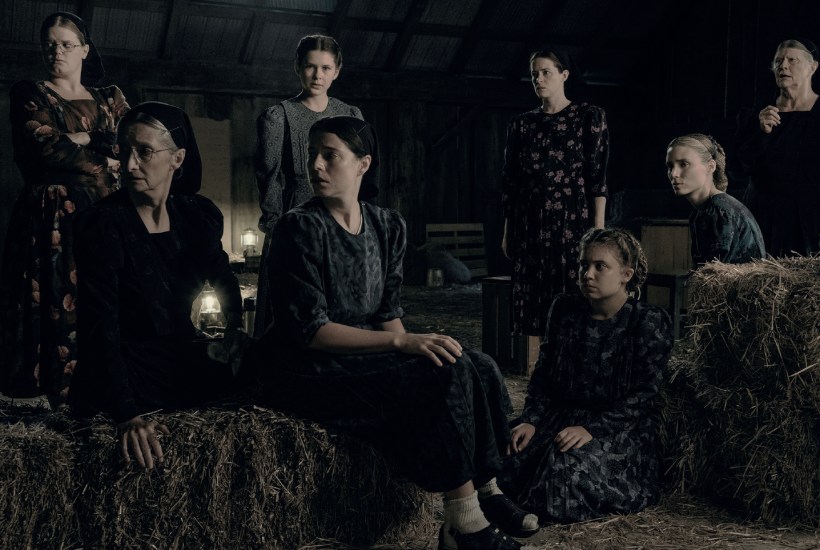Women Talking, which has received Oscar nominations for best picture and adapted screenplay, is one of those films that, on paper, is a hard sell. It is women talking, and talking and talking, after enduring the most horrifying experience at the hands of men. All of which sounds barely cinematic and even less entertaining. But as written and directed by Sarah Polley, it is compelling, gripping, powerful, as tense as a thriller. Think of it this way: it’s like Twelve Angry Men, but in this instance it’s Eight Angry Women (in a hayloft) who must reach a unanimous decision.
The premise is: women living in a Mennonite community – Mennonites are ultra-religious and shun modernity – wake in the morning with a sense that something terrible happened as they slept, and the physical evidence would appear to support that. They are sore, bruised, bloodied. They are told that it is ‘demons’ or ‘the result of wild female imagination’ but, as is eventually revealed, a number of their men (husbands, sons, brothers) have been spraying cow tranquilliser through bedroom windows to sedate them for the purposes of sexual assault and rape. Before you say feminist types will go to any fictional lengths to show men in a bad light, this actually happened in such a community in Bolivia – and not in 1704 or anything like that, but between 2005 and 2009. (One man was caught breaking in and seven were eventually tried and jailed for assaulting more than 100 women.) This formed the basis of a novel by Miriam Toews, a Canadian who was raised a Mennonite, which focused on the existential questions faced by the women in the aftermath. And this is what Polley has turned into film.
The movie has a stellar cast: Claire Foy, Jessie Buckley, Rooney Mara, Judith Ivey, Sheila McCarthy and, yes, Frances McDormand, who’s on the poster, which is a bit of a swizz as she’s on screen for five seconds, max. The story begins after the attackers’ arrest. With the colony’s remaining men in town arranging bail, the women have 48 hours to decide what to do. They have boiled it down to three options: do nothing, stay and fight, leave. As they are illiterate – only the boys in this community are taught to read and write – they have asked the schoolteacher, August (Ben Whishaw), to take the minutes of this meeting. August is a good, decent fella so #NotAllMen, if that makes you feel better.
It isn’t an excavation of the crimes, which are only ever glimpsed momentarily in flashback. And while we understand what the women have endured – Ona (Mara) is pregnant with her rapist’s child; Salome (Foy) had to walk miles to secure antibiotics for her assaulted daughter – it’s not an excavation of their trauma either. As Agata (Ivey) puts it: ‘Let’s talk about our sadness after we have nailed down a plan.’ The plan is the thing.
This is sharp, fierce, passionate. Up in that hayloft ideas flow one way, then another. Their conversation is unpredictable, swinging from angry to loving, from practical to philosophical. They’ve been taught that unless they forgive they won’t be able to enter ‘the kingdom of heaven’ but, as Ona asks, should that take priority over protecting their children? Yet leaving is a formidable challenge. They’ve never even seen a map.
The film is grim but it is also beautifully performed, surprisingly funny in places, and hopeful too. It’s set in the present in an unnamed place and filmed in desaturated colours which gives you a sense not only of a closed-off community, but also the bleached nature of a life over which the women have no control. It has a tremendously rousing ending and is well worth 104 minutes of your time, even if it doesn’t sound like it on paper.
Got something to add? Join the discussion and comment below.
Get 10 issues for just $10
Subscribe to The Spectator Australia today for the next 10 magazine issues, plus full online access, for just $10.
You might disagree with half of it, but you’ll enjoy reading all of it. Try your first month for free, then just $2 a week for the remainder of your first year.














Comments
Don't miss out
Join the conversation with other Spectator Australia readers. Subscribe to leave a comment.
SUBSCRIBEAlready a subscriber? Log in